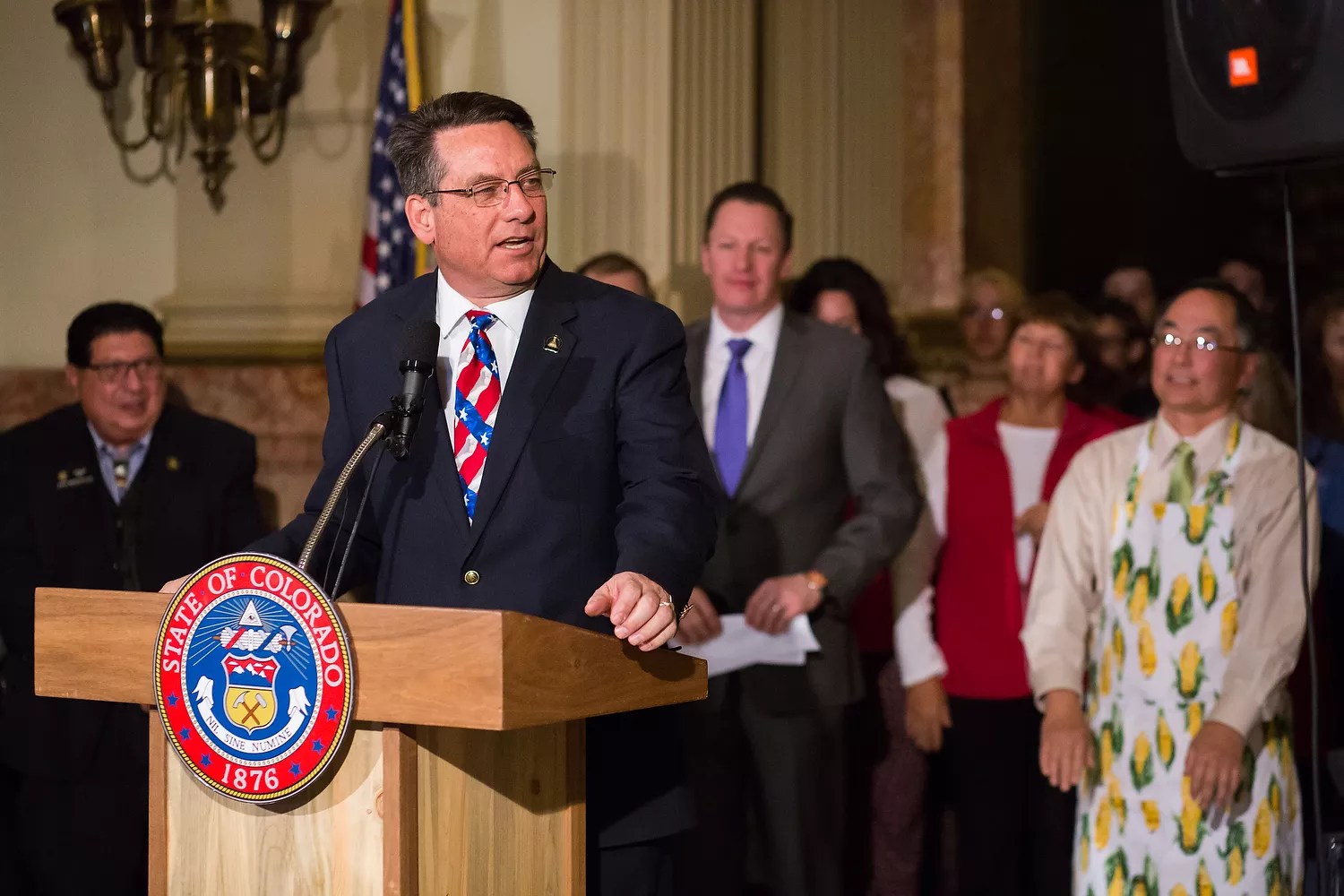
File photo

Audio By Carbonatix
A Senate committee has killed legislation that would have forced the Colorado Oil and Gas Conservation Commission to make public health, safety and the environment a pre-condition for industry permitting.
Residents, environmental advocates and industry backers packed the committee room last week, so much so that late arrivals were forced into an overflow room. But in a Republican-controlled committee (and chamber), it came as no surprise that House Bill 1071 failed – in this case, by a vote of 8-3, which included two Democrats. It was postponed indefinitely.
What did come as a surprise was that some lawmakers silenced Coloradans who came to testify in support of the now-dead bill. Senator Jerry Sonnenberg – Republican chair of the Senate Committee on Agriculture, Natural Resources and Energy – set the parameters of the committee hearing by forbidding any talk of oil and gas-related explosions, even though the bill was about protecting public health and the environment.
Senator Matt Jones, a Boulder Democrat, instigated the conversation on explosions near the outset of the hearing, which is when Sonnenberg set the rule and said, “I would prefer we stay to the bill. Actually I’m going to require we stay to the subject of the bill.” (The subject being regulating the oil and gas industry in a manner consistent with public safety.)
A handful of residents advocating for the bill defied Sonnenberg’s rule by recalling the Windsor explosion in December that injured one field worker, spewed toxic fumes and shook homes miles away, before quickly turning the conversation around to the environmental ramifications. Last year, fifteen explosions and four deaths occurred as a result of oil and gas drilling activity, including a home explosion in Firestone. Each time explosions were mentioned, Sonnenberg shut down the conversation and asked the speaker to move on.
That didn’t sit well with many people in the room. Here’s the full audio of a shouting match that ensued between them and Sonnenberg:
Commerce City resident Kristie Douglas was the last person to testify in support of HB 1071. She came to testify “for herself, her family and her community,” and she was going to talk about explosions.
“I’d like to start off by saying, Senator Sonnenberg, with all due respect, explosions actually affect your safety. If you’re dead, you’re not safe,” Douglas said.
Sonnenberg attempted to talk over her and curtail the conversation, repeatedly saying, “Mrs. Douglas, no. Mrs. Douglas,” but Douglas soldiered on.
“I am challenging you. I am challenging you, sir, I am challenging you. I am challenging you. I am challenging,” Douglas repeated over Sonnenberg’s cries for her to end the conversation. He threw down his gavel in an attempt to bring order to the hearing and cut off Douglas’s microphone. But not before she had the chance to have the final word.
“You work for us, sir, you work for us, and you said we can’t speak about explosions. Explosions have to do with health, safety and welfare, and I will tell you that I am down here spending my time as a citizen of Colorado. I hope I am not wasting my time. I see what I’m about to say will fall on deaf ears when I see a sticker that says ‘Frack it forward,'” Douglas said before her microphone was cut off and she was asked to leave the podium. One witness said she was nearly forcibly escorted out of the room before she finally left on her own.
Vocal opponents of the bill said that making public health and safety a pre-condition for permitting was a “draconian restriction” that would be an impossible task for COGCC, the state regulatory agency, to take on without a huge increase in staff, including oh-so-expensive experts. And investigating every project for health and environmental consequences instead of the existing policy of stamping permits would delay the process and, thus, hurt the industry’s bottom line.
More than that, opponents said that delaying permits would take money out of government coffers, including state severance tax. While local governments do receive property taxes from operations, the State of Colorado owes millions more in refunds to the industry than it receives in severance taxes. The situation is so dire that COGCC actually voted to increase its mill levy on oil and gas operators to stop the hemorrhaging of its own budget, though it’s not the only agency that will suffer a blow.
The bill would have codified what’s known as the Martinez case, which is pending in the Colorado Supreme Court. After the Colorado Court of Appeals ruled last year that COGCC must make public health and safety a pre-condition to permitting, the state agency appealed the ruling to the state’s highest court with legal representation by Colorado Attorney General Cynthia Coffman, who is now a Republican gubernatorial candidate.
“What was I trying to do with this bill? To stop the [Colorado] Supreme Court in engaging in the legislative process,” says Representative Joseph Salazar, who crafted HB 1071 and is running to replace Coffman.
“They’re to interpret legislation, and we’re to create it. So what I tried to do with this bill is to stop that judicial review by making it abundantly clear to the COGCC and the rest of the state what we expect from the COGCC.”
So what’s next for anti-fracking activists? A ballot initiative to create 2,500-foot setbacks between all new oil and gas developments and occupied areas is up for appeal in the state’s highest court. If successful, a petition will begin circulating to put the measure on the November ballot.